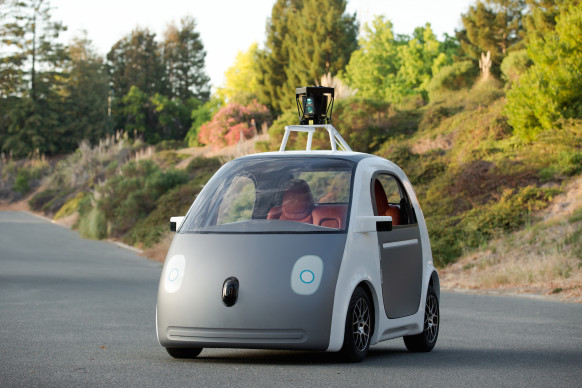New rules for robotic vehicles in California: a certified driver, special training and many, many tests

A car without a steering wheel and a driver? No, it's against the rules.
California is a special state of the USA. Here is Silicon Valley, the center of technology companies that work on a variety of projects. It is in California that many such projects are being developed. Among other interesting undertakings is the development of robomobiles. Actually, a car with a computer control system is being developed by many automakers. Most actively on such a project is Google. Not so long ago, she already showed a prototype robomobile, without a steering wheel and pedals. In addition, her test cars with a computer control system have already rolled over a million miles on the roads of the United States and some other regions.
It would seem that technology is about to reach people. On the one hand, this is so - Google planned to release a consumer version of the robomobile in the near future. Now everything may be a little delayed. Or maybe a little. The fact is that in California , a new bill is being developed , which concerns just robomobiles. This bill lists all the requirements both with the car itself and with its owner / tenant, as well as the manufacturer. And these requirements are by no means soft. Rather, they should be called "draconian." Why?
Among other requirements, one can single out the mandatory presence in the car of a person with a driver’s license, who, in addition to a driving school, has also taken additional courses, having received an additional certificate-permission to “drive” a robotic car.
As for the car, it must have a steering wheel and pedals.
And the manufacturer will not be able to immediately release the vehicle to the market. Instead, cars must be certified by an independent organization. The manufacturer, before obtaining a general permit for the supply of romobil, receives a limited permit for a period of three years. During these three years, the manufacturer can only rent cars, and any person who wants to get a robomobile must undergo special training. The training should be carried out by the manufacturer. After that, the driver receives a special mark in the rights.
All these three initial years, the manufacturer must collect information on how the robomobiles are operated. The information collected by the manufacturer will then be sent to the regulator, and used by the latter to prepare new rules. To obtain a certificate, a vehicle must be tested under various conditions. It is planned that testing will be conducted by a third party, an independent company or organization. The car must have a gadget that collects data on the operation of the vehicle. In addition, the manufacturer will have to pay from $ 33,000 to $ 50,000 as a one-time commission, as well as pay all the expenditure items for car certification.
In general, the rules were a surprise to many. The same corporation Google, which planned to use "unmanned" cars to participate in delivery systems like Google Express, was unpleasantly surprised.
However, California is not the only state where it is allowed to use robokars on public roads (so far only tested). The second state is Texas, where there are no such rules, and where they will be clearly happy to get romobils, along with investments from manufacturers of such cars. By the way, in Texas, Google conducts most of the tests of its cars. In California, car makers with computer control systems can just leave the state by moving to Texas.
